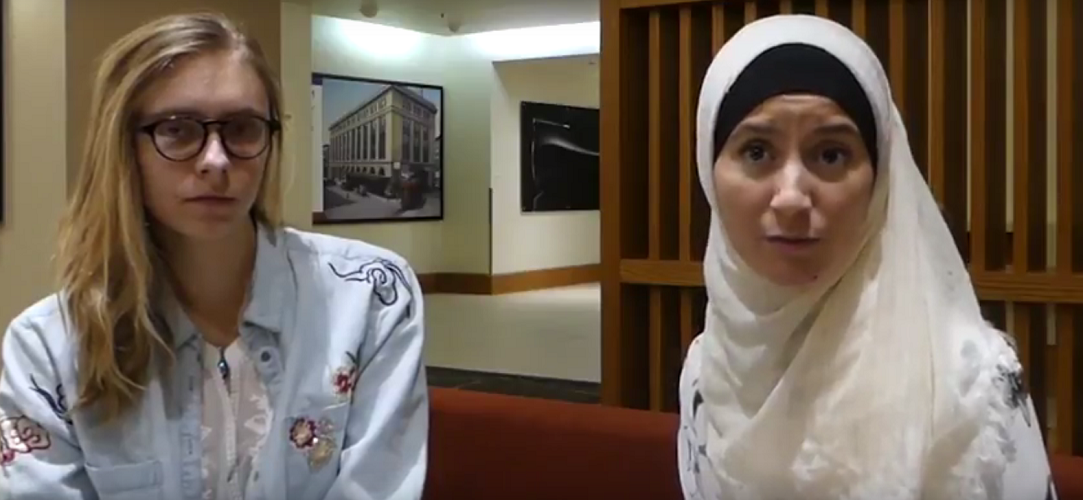
Sarah Popov and Dyhia Belhabib.
Without a doubt, team efforts generate the best results.
With this mindset, a couple of scientists embarked on a journey to West Africa on February 18, 2017.
Dyhia Belhabib, Program Manager-Fisheries for Ecotrust Canada and a West Africa advisor to the Sea Around Us, and Sarah Popov, a research assistant at the Sea Around Us, were invited to Senegal by the MAVA Foundation with the aim of meeting a range of fisheries stakeholders and addressing the main challenges the subregion’s fishing sector is facing.
Senegal was the country of choice because that is where West Africa’s Fisheries Commission is based.
Dyhia Belhabib and Sarah Popov explain more in the following video.
Despite the fact that the trip and the activities associated with it were planned months in advance, reaching Dakar was not an easy quest for Dyhia and Sarah. The first leg of their journey was plagued with unexpected surprises.
“A guy died on the plane yesterday and so we were detoured not once but twice. The second time to Conakry (Guinea),” Dyhia said in a short email message. “Amongst the confusion and the chaos at the airport, we were put in a crappy car and subsequently were stopped by the army and harassed for a bribe. We certainly made sure we did not pay.”
Sarah commented on Instagram: “After being stuck on a plane for 12 hours between Brussels, Lisbon, and flying over the Sahara, we were eventually kicked out in Conakry, Guinea instead of making it to our final destination of Dakar.”
Dyhia and Sarah, along with some 50 passengers, were placed in a hotel despite the fact that they did not have Guinean visas. Meanwhile, violent protests erupted in the country due to a teachers’ strike.
However, these difficulties did not stop these determined women from working towards the objectives they had set for this trip. From the hotel, they were able to participate in the first workshop. Later on, security guards escorted them back to the airport for their flight to Dakar, and by Tuesday February 21, they were finally on-site leading the program.

